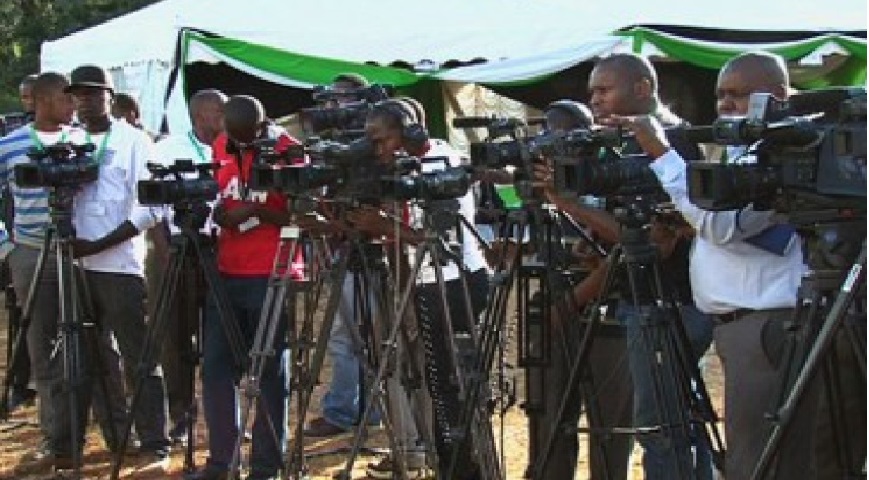High Court has invalidated sections of the law that granted the Communications Authority (CA) extensive control over broadcast content, sparking swift reactions from journalists.
Justice Lawrence Mugambi, who delivered the ruling, condemned the government’s actions as censorship, asserting that they violated the press independence guaranteed by Article 34 of the Constitution. This landmark decision followed a case brought by the Kenya Union of Journalists (KUJ), which argued that the Kenya Information and Communications (Broadcasting) Regulations of 2009 had improperly given the CA excessive authority.
A team of journalists gathered at Mitihani House during the release of KCPE results on Monday, November 18, 2019, as news broke that the High Court had invalidated sections of the law granting the Communications Authority (CA) broad control over broadcast content.
In his ruling, Justice Lawrence Mugambi condemned the government’s actions as censorship, deeming them a violation of press independence under Article 34 of the Constitution. This landmark decision came in response to a case filed by the Kenya Union of Journalists (KUJ), which argued that the Kenya Information and Communications (Broadcasting) Regulations of 2009 improperly granted excessive authority to the CA.
The authority argued that its regulations were necessary to protect children from exposure to inappropriate content. However, Judge Mugambi countered that such governmental interference undermines the principles of a free and independent media.
Did you read this?
“The government’s attempt to control media content is adversative to the independence of the media,” the judge stated. He insisted that oversight of media standards should reside exclusively with the Media Council of Kenya (MCK), which is empowered to set ethical guidelines for journalism.
KUJ argued that the issues addressed by the CA were already covered under the existing Code of Conduct for Journalism, asserting that the CA’s regulations introduced vagueness and uncertainty, potentially exposing journalists to unwarranted complaints.
In his ruling, Justice Mugambi granted the Media Council a six-month period to implement effective regulations aimed at protecting vulnerable audiences, especially children, from harmful content. This decision marks a significant victory for media advocates, underscoring the importance of an independent press free from government interference.









